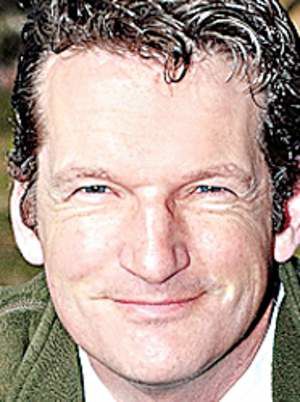Opponent sees conflict of interest
Published 5:00 am Saturday, October 16, 2010

- Chuck Arnold
If Chuck Arnold is elected to the Bend City Council, his opponent is concerned that Arnold’s day job might get in the way of his decision-making as an elected official.
Arnold is the executive director of the Downtown Bend Business Association, and his paycheck comes from a city-collected assessment that downtown business owners agree to pay to fund operations of the organization.
Scott Ramsay, who is running against Arnold in the Nov. 2 election, has raised the conflict-of-interest issue a number of times during his campaign, and he’s not the only one.
Councilor Oran Teater, who is vacating the council seat Arnold and Ramsay are vying for, also has some concerns about Arnold having potential conflicts.
“I like Chuck, but I think there’s a close association between the Downtown Bend Business Association and the city,” Teater said. “He’s their employee, so he can’t advocate for the downtown business owners to the council if he’s a council person.”
Teater, who admits he would like to see Ramsay replace him on the council, said a number of issues could present Arnold with some quandaries. These include downtown parking, street closures that would impact businesses and any issues dealing with events, like Summer Fest, that Arnold helps to organize.
Arnold, however, thinks his job is a non-issue when it comes to his candidacy for City Council, and doesn’t believe there would be many instances in which he would have to separate himself from the decision-making process.
‘Personal interest’
“A conflict of interest is defined as a decision influenced by personal interests,” Arnold said. “I don’t have a personal interest. There’s no gain that I get personally from any efforts of the City Council. There’s no connection there. I don’t work for the city.”
The Downtown Bend Business Association is a nonprofit organization that gets its money through a property assessment approved by its members. While the City Council must approve this assessment before it takes effect, the amount is set by the business association beforehand.
‘Potential’ vs. ‘actual’
Arnold said he’s already discussed a possible conflict of interest with his own attorney, Bend City Attorney Mary Winters and the Downtown Bend Business Association Board. If elected, he said, if there was ever a question involving a conflict, he would defer to the city attorney to clarify the issue.
According to Oregon Government Ethics Commission Executive Director Ron Bersin, Arnold would have to evaluate each scenario that involves downtown issues to determine if there is a “potential” or “actual” conflict of interest. If it’s a potential conflict, he could still vote on the matter as long as he discloses that he might have a possible conflict.
“It’s whether (a person) could benefit or would benefit,” Bersin said about the distinction between potential and actual conflicts of interest. “If they could benefit, it’s a potential conflict. If they would benefit, it’s an actual conflict.”
An example of a potential conflict of interest would be if the council were going to make a decision on increasing the amount of parking space available in Bend’s downtown district. While this might increase customer traffic, and therefore the amount of money downtown businesses make, Bersin said there is no explicit correlation to Arnold or the business association receiving a direct benefit.
An actual conflict, on the other hand, might be a scenario in which the City Council is considering giving money to the Downtown Bend Business Association — or subsidizing it in some other way — which would result in a direct benefit to Arnold.
In this case, Bersin said, Arnold could not participate in the discussion or the vote.
While Arnold said he would never allow his position as the executive director of the Downtown Bend Business Association to “taint” his decisions as a councilor, Ramsay said it’s an issue that should be out in the open.
“It’s definitely something that needs to be thought out completely before a decision is made,” Ramsay said. “Certainly, anyone who is concerned with that issue should look into it and see how much that potential for recusal could ripple back.”






